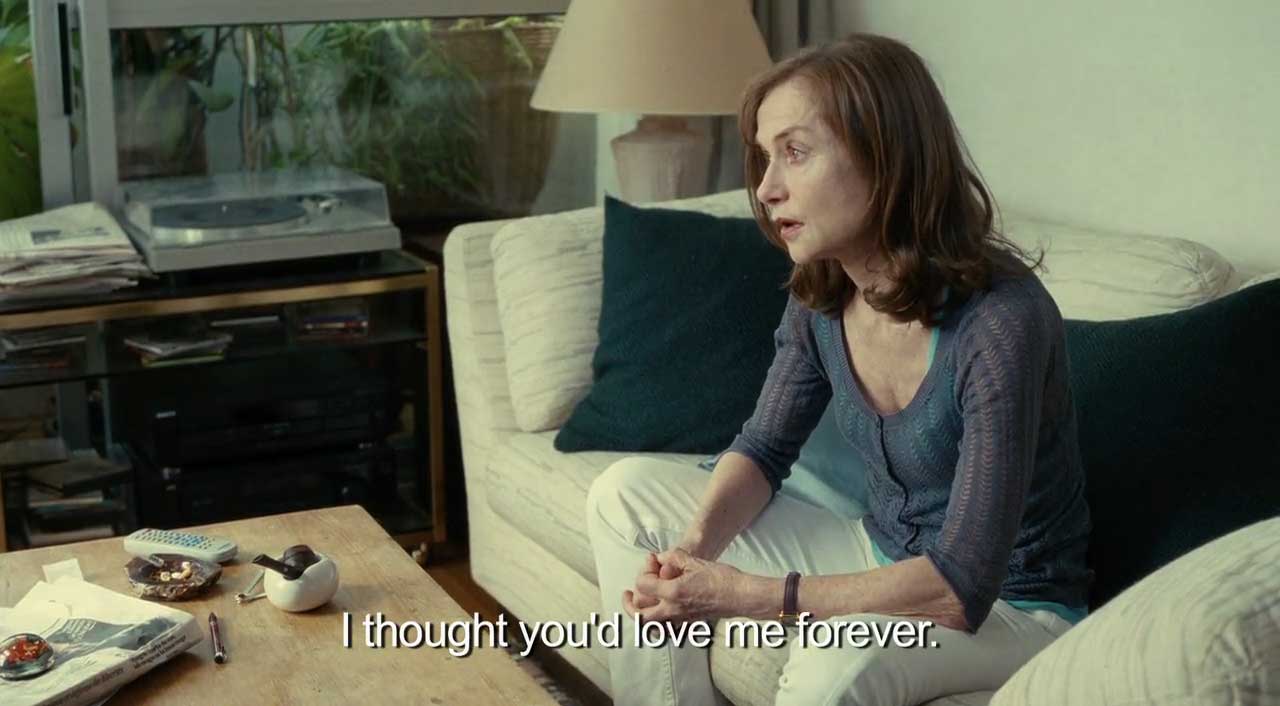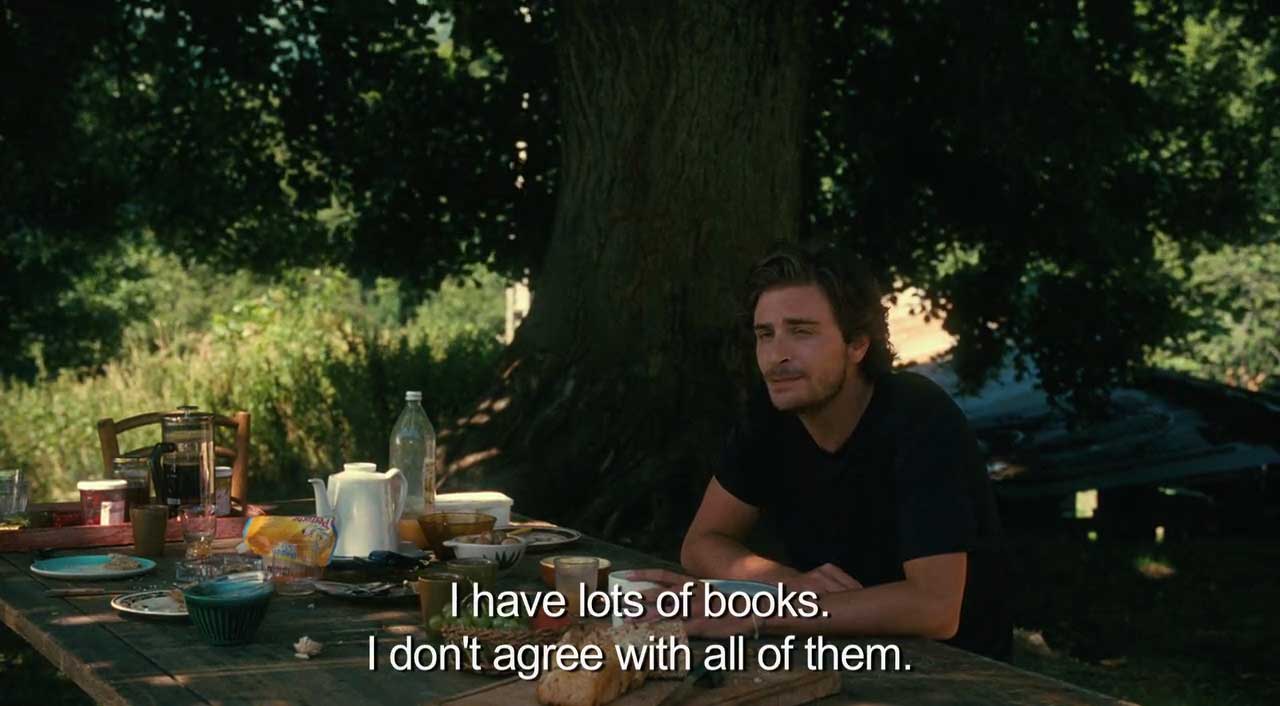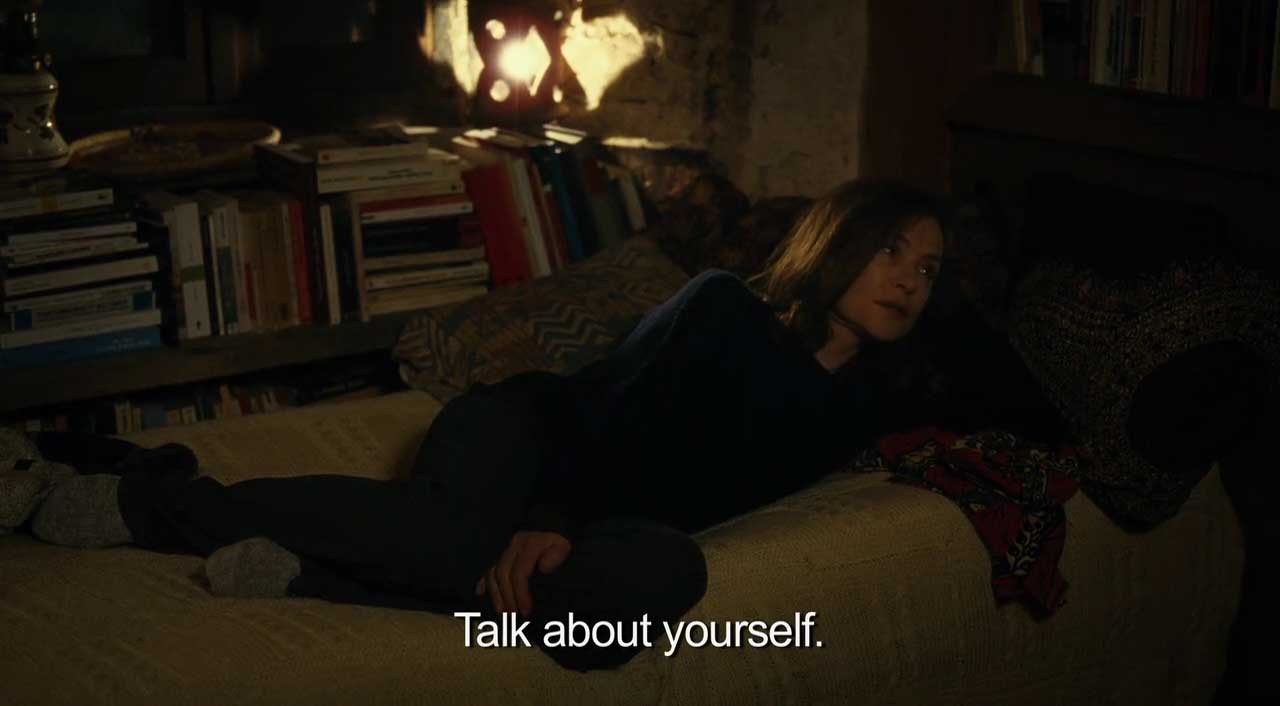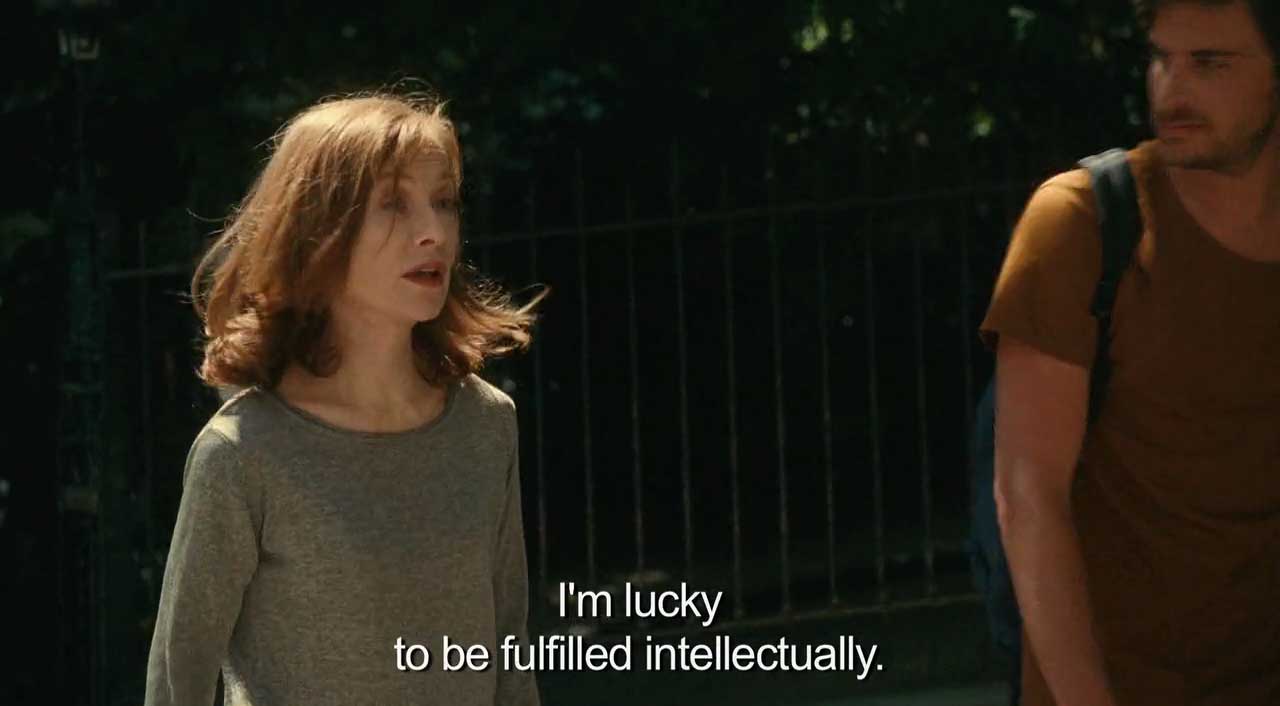By glorifying and providing community to the lonely individualism of sociopathic liberalism this film transforms a philosophy confronted with its limitations into pure ideology.xxxxxxxxxxxxxxxxxxxxxxxxxxxxxxxxxxxxxxxxxxxxxxxxxxxxxxxxxxxxxxxxxxxxxxxxxxxxxxxxxxxxxxxxxxxxxxxxxxxxxxxxxxxxxxxxxxxxxxxxxxxxxxxxxxxxxxxxxxxxxxxxxxxxxxxxxxxxxxxxxxxxxxxxxxxxxxxxxxxxxxxxxxxxxxxxxxxxxxxxxxxxxxxxxxxxxxxxxxxxxxxxxxxxxxxxxxxxxxxxxxxxxxxxxxxxxxxxxxxxxxxxxxxxxxxxxxxxxxxxxxxxxxxxxxxxxxxxxxxx
There is certainly something appealing to the idea of human life as fully intentioned at every moment, of the possibility that one can shape life according to their thoughts, and a form of quiet deliberateness found amidst the flux of life. This is the feeling one might have after watching Things To Come, a 2016 French film starring Isabelle Huppert, as the private sounds of life—the footsteps on the street, the sound of the keys in the door—are isolated and heightened to the senses through the attention and selective focus that are natural to cinema. One might feel themselves and the bottomless solitude of human existence reflected in the cinematic such that one feels oneself participating in the vast expanse of silent, deliberate human activity at that center of the cosmos. And one might say that this indeed expresses the truth of human life, that one is all alone in it after all. On the other hand, as the experience of the film begins to recede a missing dimension of humanity sows a dissonant chord in the perfection of this idea. The deliberateness of a walk across the yard contrasts with an emotional vacuity in a moment in which one is told that their husband of 25-years is leaving them for a younger woman; or the casual dismissal when a publishing agent informs that one's work is no longer contemporary, saleable, and that their book contract will not be renewed. These moments seem to say that one must accept with flippant resignation the truth that others' actions are never bound to them and that they can never really expect anything from anyone and to do so is only a temporary, self-indulgent fantasy. In this way, the philosophy that the film expresses is at one and the same time comforting truth and over-extended presumption: one feels the solitary truth of life elevated to cinematic significance at the same time notions of morality and confidence in others are subtly undermined by a seemingly inappropriate level of individualism.

More specifically, the film portrays the life of a philosophy professor who's husband leaves her, who loses her publishing contract for her life's work, and who's student becomes a critic of her philosophy as being not radical enough, too privatized and bourgeois. On its surface, these situations represent a serious challenge to the liberal ideology of the professor: they potentially represent the breakdown of the correlation between her thought and action and the nakedness of life unmitigated by human control and mediation. Her life's work in philosophy is no longer marketable and relevant (even to her own students), the private material and emotional life that she has invested in for decades has crumbled, and she is forced to confront life on new terms, as her thought is revealed to be no longer insufficient to the contemporary reality. However, in the film, this insufficiency only serves to reveal the deeper 'truth' that her life work in philosophy was only ever a contingent, individualized product who's more basic function was to instill a form of individual, creative, independent thought in others. The thought itself, in explicit form, is no longer the issue; rather, it is the private relationships between people that matter, and how 'philosophy' is enacted in life. It is not a philosophy because it prescribes 'the true' for all eternity: these 'truths' are forever changing, subject to the contemporary times and the evolution prescribed, for instance, by generational shifts in culture and youth. Rather, it is a philosophy through the way in which it persists at the moment of its potential breakdown. Loss of a husband, the challenge of a student, the loss of a career, become, in this film, moments that reflect a deeper individualism than that described by the ostensible differences between 'philosophies' (between that prescribed in the Unabomber manifesto, or by Zizek, for instance). The lifetime of writings on philosophy no longer define the contours of individualism and what distinguishes the specificity of one from another; rather, it is the fact that one can take an approach of resignation to the approaching irrelevance of these things and find in life yet a new, deeper level of individualism/isolation within which to reestablish one's self. The specifics of one's philosophy can no longer be at issue in the disagreement with the new generation's philosophy (the pain she feels about being critqued as too petit bourgeois, not civil-society oriented enough), and they aren't to be taken seriously really, in this new, more profound level of individualism. The fact that a relationship has fallen apart does not provoke introspection about its causes, that a former husband spends his Christmas alone with his favorite sausage and wine, that the children eat the hot meal while the 'grandmother' tends to the newborn child isn't of any real concern; rather, each of these moments expresses a life becoming endlessly fragmented into increasingly individualized, atomized parts that must be accepted for what they are as expressing the infinite specificity of a life1.

This film says, basically, that human thought and philosophy is itself purely provisional and contingent and a result of the operation of some other, larger unnamed force that structures existence and over which humanity has no control, something that humans, as progressive liberal realists, must learn to accept as concerns the certainty of their eventual irrelevance and obsolescence. Change is taken in the film as inexorable and in response to which one must fundamentally disavow any implication of enduring truth. This is a deeply cynical, apathetic perspective on life and one, fundamentally, based in a total ignorance, disavowal, or psychotic-autistic insensitivity to the reality of truth within it. It is a world-view that sees everything (beyond oneself as well as within oneself) as illusory, transitory, and beyond one's control and possibility for authentic, truthful connection, the response to which is a construction of self and life based on this bottomless contingency that leads to an always provisional involvement in temporary, fundamentally meaningless situations that is based in emotional evenness and consistency that is inhuman to the point of sociopathology in its detachment. Without any real faith whatsoever in life and the possibility for truth within it and the potential for self and collective actualization through relationships with others, liberal existence devolves into an essentially dissociated schizo2. And since it concedes to no longer, in its explicit (Philosophical) form, have any real correlation with life, liberal philosophy becomes transformed into pure ideology through the way in which, in the withdrawal of the organizing principles/rationality, one persists in the entire lifestyle that supported (and, more importantly, was supported by) the production of this explicit thought (in this film, as a philosophy professor, there, as a human rights advocate).

Furthermore, what masquerades as an enlightened selflessness concerned with 'the social' and society becomes, in this further withdrawal inward and away from the world, clinically selfish through the way in which a disavowal of belief in other human beings becomes an empty form of instrumentality that reinserts one into these human relationships in a purely provisional, detached manner. As one justifies their withdrawal from the conflicts of life in the self-assurance that their powerlessness has only to do with a more basic structure of life and biological-intellectual evolution, what appears to one as radical realism in the face of the bottomless contingency of life is exposed as disgustingly inhuman3. Rather than a belief in others and the family that comes from a reckoning with the fundamentally flawed individualism of liberal philosophy that one must confront as the ever-decreasing sphere of influence one has over their life and surroundings in the world occurs in old age, what this film prescribes is the complete dissociation of one from life according to a new, self-produced rationalization in order to bring thought back into conformity with a life that fundamentally (and self-avowedly) rejects it. In this way, rather than ever being subject to a breakdown in one's thought that would force a confrontation with others through which a new form of living-together and the production of a new, shared rationality could arise, this film reveals the way in which one is able to reconstitute an individualized, privatized philosophy of life based on a deeper concept of the atomized structure of life that sees the only goal as reproducing independent, individualized life ('I thought I taught you at least how to think critically and independently', she says to her student). This is the generational churn of individualized dissociated schizo's that prescribes an endless internalization of external difference and conflict: it is the universe reflected in one's own private thought, trapped in a selfish, self-satisfied bubble that engages with people only according to their own thought in the manner of an empty instrumentality that masquerades as selflessness (e.g., while 'I would prefer you eat it hot' may seem like a genuine grandmotherly thing to do, it betrays a total vacuity amongst those at the table who are every moment avoiding conflict, withdrawing into themselves and reforming their own independent thought through which the only social life that remains is superficial chit-chat based in economic affluence).

Finally, what is particularly interesting about this film is the way in which this dissociation is prescribed: it is not purely through the explicit argumentation that takes place through the characters and dialogue in the film; rather, it is as a result of the way in which the film elevates the solitude of liberal individualism through techniques of the cinematic through which the more basic communication and political, ideological transformation is achieved. The heightened sounds of private life and the contrived deliberate intentionality that arises through the techniques of montage and editing, of time and space compression that is natural to cinema produce the appearance of intentionality, a sensation of solidarity, and a perspective of linked-alienations working towards a common goal where, in reality, there are none. In this way, the film provides a form of socialization, a feeling of shared community that arises purely from the art-form and technology itself through which the transformation of liberal philosophy to ideology that occurs within the film is transmitted to the viewer. One senses the freedom to persist in the logical contradiction and irrelevance of their individualized life because of this sense of solidarity and momentary affinity that the film provides, from the fact that solitary struggle has been given new energy to persist through its reflection and glamorization in the cinematic. In this way, what is only abstract in the narrative of the film (as the professor withdraws into a more narrow conception of her influence in old age while preserving a more elaborate form of philosophical justification) becomes concrete in the life of the viewer (as the artificial, cinematically produced resolve supports the persistence of one in the solitude of their individualized objectives in life). To this, one must ask: to what extent is this support for individualized life an expression of a philosophical liberalism of the film itself and of the potential for film to support and produce a diversity of philosophies (e.g., liberalism, communism) or, rather, is it rather an expression of an innate liberalism that arises from the more basic structure of the art-form of cinema itself (as a technology of global dispersion that organizes a heterogeneous community in an alienated form of dialogue amongst a multitude)?
Footnotes
However, the film does express the contours of a broader set of liberal truths. First, it is acceptance that philosophies and ideas are temporary products of people in a generational marketplace and that they will always be superseded by the next generation that will take them up in the form of reactionary criticism. Second, it is the idea of tolerance, multi-racial/multi-cultural life needing to become increasingly militant in its appropriation of public space through protest and demonstration through which a politics that sees in civil society and public space the only redeeming place from the solitude and limitations of the individual can be elaborated. Third, it is the idea that private family life is the final salvation for a liberalism that is always critical of it in favor of the civil society public space that is here elevated not as some coherent domain for the emergence of truth in life, but according to the simple fact of motherly responsibility and support human, biological reproduction. It is family life reduced to nothing more than an empty instrumentality and mechanism: instrumental, as the location of the final liberal confrontation with loss of control over public life, and mechanism for that realization, as a set of relationships through which one can reveal their diligent, dedicated economic and social support function. Together, these essentially express the bourgeois, economic security of the liberal philosophy. ↩
To the extent that such dissociation becomes impossible to maintain or that one becomes 'deluded' by life and the fantasy of truth within it, leads to a form of self-flaggellistic, masochistic and ascetic reactionary-ism that then seeks to bring life back into alignment with a philosophy that has been only temporarily betrayed on account of human insufficiency and weakness that has allowed one to become overly indulgent. ↩
As, for instance, 'support' for others based on blind, unconditional concern is replaced with mechanical, rationalized 'assistance'. ↩
